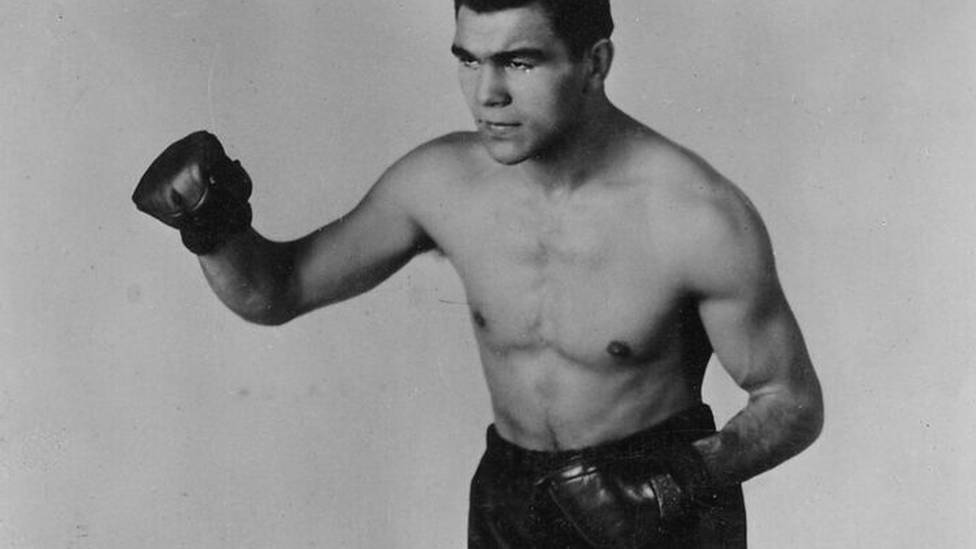Max Schmeling has become a German myth as a world champion and Joe Louis conqueror. As an escape agent from Nazi Germany, he also became a lifesaver.
The heart of a boxer knows only one love: the fight to win all alone. A boxer’s heart knows only one concern: to always be first in the ring. “
Max Schmeling’s heart beat for 99 years before he died on 2 February 2005. He, the only German world champion of all classes, the greatest idol of German boxing, perhaps of German sport in general.
His historic world championship triumph over Jack Sharkey, his sensational victory over Joe Louis made him a myth in the 1930s, the subject of books, films, plays – Schmeling himself also immortalised himself in popular culture with the song quoted above.
It was only many decades after the end of his career that it became known that he was even more than just a great athlete: Schmeling’s greatest feat was saving two young lives in the midst of one of the darkest hours in German history.
Victory over Joe Louis made Max Schmeling a legend
Schmeling was born on 28 September 1905 – 117 years ago today – in Klein-Luckow, in the Uckermarck region between Brandenburg and Mecklenburg. The family soon moves to Hamburg, where the father gets a job as a seaman. Young Max finds an apprenticeship in Cologne and starts boxing there at the age of 18.
Just one year later he becomes a professional in 1924, German champion in 1926, European champion in 1927. Max Schmeling is only 1.85 m tall and weighs 85 kilos, almost a light heavyweight, a counter boxer with brilliant reaction and a hard-hitting right hand.
In 1928, he drops all his titles and ventures across the pond. After two years he has earned a world championship chance. The title is vacant due to the retirement of Gene Tunney, Schmeling faces Jack Sharkey in New York. In round four Sharkey is disqualified after a low blow and Schmeling is declared world champion on the ground. Two years later Sharkey reclaimed the title – but Schmeling’s most memorable victory was still to come.
On 19 June 1936, in front of 40,000 spectators at the Yankee Stadium in New York, he met Joe Louis, the up-and-coming boxing phenomenon – but in whom Schmeling discovered a tactical weakness in his cover work. Louis goes down for the first time in his career in round four, and is counted out in round twelve.
Schmeling helped Jewish youth escape
Louis – who was to become a good friend of Schmeling’s – won the rematch clearly, but nothing could dim the historic moment, not even Hitler’s attempts to embrace Germany.
The reason Schmeling’s reputation remained intact in the post-war period was that he took the appropriation with comparative reserve.
Schmeling did not oppose the system, later also accused himself of “naivety” in dealing with the regime – but nevertheless kept a certain distance: he did not join the NSDAP, kept his Jewish manager Joe Jacobs, even refused to honour Adolf Hitler. “I’m a boxer, not a politician,” was one of his most famous sentences.
As was later revealed, Schmeling even actively helped victims of the Hitler regime: in 1938, during the November pogroms, he hid two Jewish youths – sons of a boutique owner who was a friend of his – in his hotel room, thus helping them to escape.
The rescued brothers Henri and Werner Lewin made the story public in 1989. It wasn’t until 12 years later, however, that a Sports Illustrated article gave the story wider publicity.
“If they had found out what Max was doing, I’m sure he would have been shot,” speculated the eternally grateful Henri Lewin in a 2004 interview with Welt am Sonntag.
Ali and Tyson also paid tribute to Schmeling
As a successful businessman and widely honoured promoter of German sport, Schmeling remained in the public eye even after the war and the end of his career in the ring.
It was not until 1987 that he largely withdrew after the death of his beloved wife Anny Ondra – but numerous sports and social celebrities sought his closeness until the end. Henry Maske, Wladimir Klitschko, Franz Beckenbauer and Uwe Seeler were among those who attended his funeral.
During Schmeling’s lifetime, the Lewin brothers – who were saved by Schmeling and became successful hoteliers in the USA – organised a big thank-you ceremony in Las Vegas, at which Muhammad Ali and the young Mike Tyson, among others, bowed down to Schmeling.
“I had Nuremberg bratwurst, sauerkraut and Berlin meatballs specially flown in. Film clips of his fights were shown, Max commented on them himself,” Werner Lewin recalled.
He died in 2008, his brother eight years later after a long and fulfilled life.

